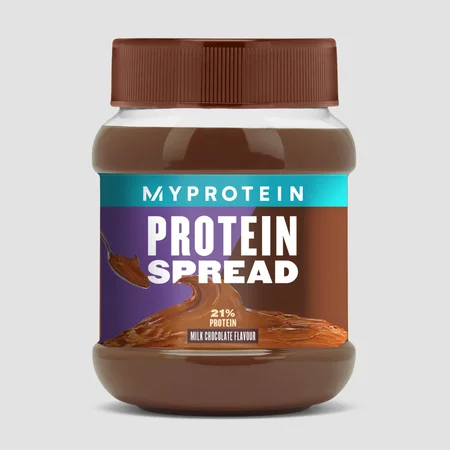Palestra tutti i giorni | È necessario e proficuo?

Gym Every Day
What is the Best Approach? Because?

The Reason for This Almost Obsessive Passion?
Exceptions to the rule
1. Genetics
2. Professionalism
Molti degli atleti di livello olimpico (basti pensare ai ginnasti o ai nuotatori, che, nell’immaginario collettivo, sono due categorie sottoposte a carichi di lavoro molto elevati) sono professionisti, ovvero la disciplina che praticano e per cui si allenano è la loro unica occupazione, mentre noialtri atleti ricreazionali dobbiamo bilanciare lo stress indotto dal lavoro o dallo studio con quello indotto dall’allenamento.
3. Doping
Quest’ultimo punto è un po’ un tabù, però non può essere sottaciuto, perché una delle caratteristiche principali dei farmaci per l’aumento della performance (testosterone e sostanze derivate, in particolare) è quella di facilitare grandemente il recupero, incanalando i nutrienti verso le cellule muscolari e stimolando la sintesi proteica e quindi il rimaneggiamento delle proteine contrattili.
Notoriamente, una grossa fetta dei culturisti di alto livello e una percentuale imprecisata di atleti professionisti di quasi tutti gli sport (è verosimile che gli scandali che hanno coinvolto ciclismo e atletica leggera negli ultimi anni siano solo la punta dell’iceberg) fa uso di queste sostanze, senza le quali i lunghi e massacranti allenamenti a cui si sottopongono sarebbero sostanzialmente impossibili.
La maggior parte di noi non fa parte di nessuno delle 3 categorie appena citate, quindi (purtroppo) sarà meglio che ci autoimponiamo di resistere alla tentazione di strafare, di allenarci ogni giorno fino a sfinirci, perché, come dice un celebre proverbio americano: “qualche volta bisogna fare un passo indietro, per fare due passi avanti!”.
Il mio consiglio spassionato è quello di recarsi in palestra massimo 5 volte a settimana, ovvero prevedere almeno 2 giorni di riposo (riposo non significa necessariamente passare la giornata in coma sul divano davanti alla TV; attività fisiche leggere, come passeggiare o sbrigare faccende insieme ad amici o ai propri cari, sono straconsigliate per un buon recupero psico-fisico, persino più del riposo assoluto).
Sebbene ritengo che i risultati migliori si ottengano alternando un giorno di allenamento e un giorno di riposo, (se proprio non riusciamo a rimanere così tanto lontani dalla palestra) è abbastanza tollerabile una routine che contempli due giorni di allenamento seguiti da uno di riposo, ad esempio:
- Lunedì e Martedì: allenamento
- Mercoledì: riposo
- Giovedì e Venerdì: allenamento
- Sabato: riposo
- Domenica e Lunedì: allenamento
- Martedì: riposo
- … e così via ….
Recupero = Riposo + Nutrizione
È bene tenere a mente che l’altra componente fondamentale del recupero, oltre al riposo, è la nutrizione. Senza una buona alimentazione, se anche il riposo fosse adeguato, otterremmo comunque risultati mediocri.
Il capitolo nutrizione meriterebbe una trattazione a sé stante, quindi in questo articolo mi limito a rimarcarne l’importanza, in particolare per quanto riguarda la nutrizione peri-allenamento (ovvero i pasti immediatamente prima e dopo e gli eventuali integratori assunti durante l’allenamento stesso), a cui ho accennato nell’articolo precedente.
La Famigerata Triade “Eat, Sleep, Train”
Abbiamo parlato di sleep (riposare), del nostro amato train (allenarsi) e accennato a eat (mangiare).

Questo mantra è forse un po’ semplicistico, ma, in fin dei conti, riassume splendidamente ciò che serve per ottenere buoni risultati dall’allenamento coi pesi/di forza:
1. mangia (fai bene attenzione sia alla quantità che alla qualità dei nutrienti!);
2. riposa (lo so, questa è la parte più noiosa, ma ahinoi è necessaria altrimenti si rischia di vanificare tutto);
3. allenati (la parte più coinvolgente, a volte troppo …. Ricordiamoci sempre che per ottimizzare la crescita muscolare, l’allenamento deve fungere da stimolo, non deve essere un massacro per il nostro apparato neuro-muscolare. Perciò, come monito, cito una celebre frase del vincitore di 8 titoli di Mr Olympia, Lee Haney: “stimulate, do not annhilate!” ovvero sia “stimolare, non annientare!”).
Train Every Day










